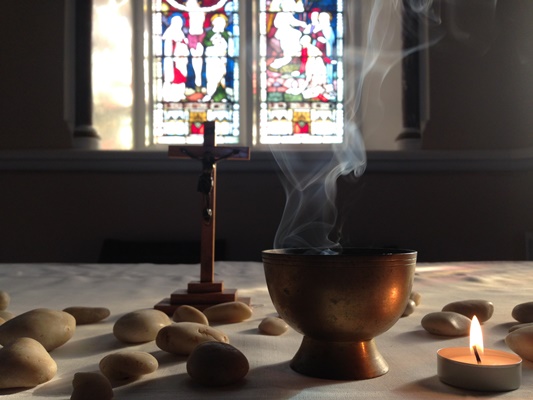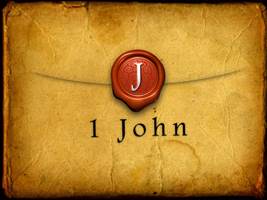Prayer is a powerful tool; it’s a tool that enables us to communicate with God either directly or through the advocacy of Christ, more often than not in the power of the Holy Spirit. If you were to dip your hand into your prayer toolbox you should not be surprised that at different times and in different circumstances you would find a diverse range of tools that you could draw out; yet each one of them would fit your purpose.
Throughout my training I have had opportunities to experience different forms of prayer; from the strict, traditional Prayer Book style to free-flowing extemporary prayer. However, the one constant is the discipline of saying Morning, Evening and Night Prayer (Compline), although I have to confess that the first of these has been more faithfully undertaken as against the occasional imperceptible mutterings as I drift off to sleep.
Morning Prayer, like most church liturgy changes with the seasons. There are moments throughout the year when certain phrases cause one to catch your breath or make your heart sing; in fact in Epiphany season I been known to break into song when reading the Jubilate – A Song of Joy; but just about all of them are preceded by an opening prayer that sets the right tone for the day ahead:
The night has passed, and the day lies open before us;
let us pray with one heart and mind.
Silence is kept.
As we rejoice in the gift of this new day,
so may the light of your presence, O God,
set our hearts on fire with love for you;
Amen
Each morning and evening we are also given one or more of the Psalms to read. However, these too are prayers and throughout the Psalms, David and the other writers poured out their hearts to God in prayer, expressing honest feelings of anguish and desperate pleas for protection. They grieved painful confessions of sin, confidently expressed their hope and trust in God, and joyfully lifted praises to God.
In the same way they enable us to give voice to our feelings, whether of despair when we are at a low point in our lives or sheer exuberance at the scope and majesty of creation. They bring us into contact with the ancient people and places of our history – some long-lost civilizations; but they can also speak into current situations.
I suspect that we all have our favourites but for me Psalm 104 ranks high on my list as it sweeps through the beauty of creation; from the heavens spread out like a curtain to the deeps in which the Leviathan play; the springs and brooks that quench the thirst of the wild donkeys to the cypress trees where storks dwell and the conies and wild goats taking refuge on the stony cliffs. How food is brought forth from the earth with wine to gladden hearts, oil to soothe and bread for strength. A true prayer of thanksgiving!
Sometimes though prayer can be difficult; when we are tempted to ask, ‘Why me?’ So often we seek responses to our prayers in very exact ways, and when they don’t appear to be answered ‘just so’ we may become disillusioned and distrusting. As part of a sermon recently we were asked to look at it in a slightly different way. Instead of asking. ‘Why has this happened to me?’ try removing the ‘Why’. Suddenly it becomes, ‘This has happened to me.’ Now our prayer can be for strength and guidance on how we are going to deal with the situation and thus be able to move forward, even if we need to take it day by day.
Which leads us to the evening of the day, when with that same one heart and mind that we started the day with we ask that the end of the day may be holy, good and peaceful, as our prayers rise before God; before finally, looking for a quiet night and perfect end to our day in a responsory prayer:
In peace we will lie down and sleep:
for you alone, Lord, make us dwell in safety.
Abide with us, Lord Jesus,
for the night is at hand and the day is now past.
As the night watch looks for the morning,
so do we look for you, O Christ.
The Lord bless us and watch over us;
the Lord make his face shine upon us and be gracious to us;
the Lord look kindly on us and give us peace
Amen
And for those who are still out there seeking, this beautiful prayer is taken from Celtic Daily Prayer, Morning Prayer from the Northumbrian Community:
May the peace of the Lord Christ go with you,
wherever He may send you.
May He guide you through the wilderness,
protect you through the storm.
May He bring you home rejoicing
at the wonder He has shown you.
May He bring you home rejoicing
once again into our doors.
Prayer, as I said at the beginning is as different and individual as we are, and whether our prayers are whispered in the dark or shouted from the rooftops, whether they come in fancy words or stuttering sobs, know that each and every one of them is heard. So never feel that your prayer time is wasted or that you don’t have time to pray. Those few precious moments could make all the difference to your day. Amen
Prayers have been reproduced from Daily Prayer ©The Archbishops’ Council 2005 and Celtic Daily Prayer ©2000, 2005 The Northumbria Community Trust












